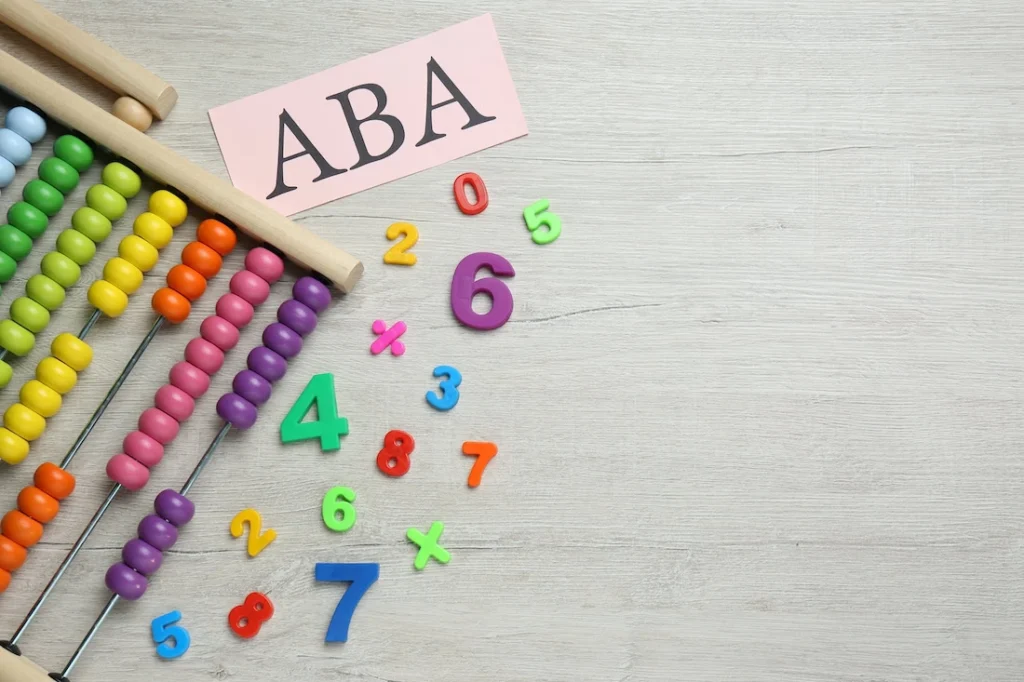Autism affects families across every culture and background, but the journey to understanding and support can look different depending on your community.
For many families navigating autism in the Jewish community, cultural and religious values often play a big role in how a diagnosis is received and what steps come next. Some parents may feel uncertain about how therapy will fit into their lifestyle, or worry about how their child will be accepted in schools, synagogues, or extended family settings.
At ABA Revolution, we understand that care should never come at the expense of your values. That’s why we offer autism therapy that is not only effective but also respectful, inclusive, and built around each family’s unique needs.
Our team is here to support your child’s growth while honoring the traditions that matter most to you.
Understanding Autism in the Jewish Community
Every Jewish family’s experience is different, and so are the ways autism is understood and addressed.
In some Orthodox communities, a diagnosis might be kept private due to fears around stigma or community perception. In more liberal or secular households, families may feel more open to therapy but still face a lack of culturally sensitive support.
These differences don’t just shape beliefs—they influence access to care, comfort in asking for help, and willingness to engage with treatment.
Some families worry that a diagnosis could impact their child’s future in religious schooling. Others simply struggle to find providers who understand kosher practices, modesty expectations, or the importance of observing Shabbat and holidays.
Still, the conversation is changing. More Jewish communities are embracing neurodiversity and creating space for children with autism to be included, supported, and understood. That shift is opening the door for families to seek help without fear, and for therapy centers to meet them with compassion and cultural respect.
At ABA Revolution, we believe that honoring your faith and family traditions is a key part of effective, meaningful care for autism.
How ABA Revolution Supports Jewish Families
Finding support for autism in the Jewish community means more than just locating a therapy provider—it means working with people who truly understand and respect your way of life.
At ABA Revolution, we believe that families should never have to choose between their child’s care and their cultural or religious values. That’s why we offer autism therapy that is flexible, personalized, and fully aligned with each family’s traditions, routines, and goals.
Therapy That Respects Your Values and Lifestyle
Whether your family is observant, traditional, or secular, we take the time to learn what matters to you. Our team can adapt your child’s therapy schedule and environment to accommodate:
- Shabbat observance: We never require sessions on religious days of rest and are happy to build around your family’s weekly rhythm.
- Jewish holidays: Therapy plans can pause or adjust to respect major holidays like Rosh Hashanah, Yom Kippur, Passover, and more.
- Kosher considerations: We understand the importance of kosher dietary laws and can ensure your child’s therapy experience respects food-related needs.
- Modesty and gender preferences: If you prefer a gender-matched therapist for your child, we do our best to accommodate you. Privacy and modesty are always respected.
We also recognize that many families balance therapy with Hebrew school or synagogue commitments. Our flexible scheduling allows for adjustments around those activities, making it easier for your child to receive care without disrupting their religious or educational life.
What ABA Therapy Looks Like at ABA Revolution
Applied Behavior Analysis (ABA) is an evidence-based and structured approach to helping children with autism build communication, social, and daily living skills. That doesn’t mean it’s cold or clinical. In fact, at ABA Revolution, therapy is child-centered, engaging, and full of positive reinforcement.
We focus on helping your child take small, meaningful steps forward—whether it’s learning to ask for help, participate in group activities, or complete everyday routines. Every therapy plan is built around your child’s individual needs. Goals are set in partnership with you and reflect your child’s strengths, challenges, and your family’s priorities.
That means if something in your religious life is important—like preparing for synagogue, managing transitions during holidays, or navigating social events in your community—we can include those goals in the plan.
A Path Forward That Honors Your Faith
Autism in the Jewish community doesn’t have to be faced alone—and it doesn’t have to come at the expense of your family’s values, traditions, or way of life. With the right support, your child can grow, learn, and thrive in ways that feel meaningful to your entire family.
At ABA Revolution, we’re dedicated to providing personalized, culturally respectful care that meets your child where they are and honors who they are.
We understand that every family is different, and we’re here to listen, support, and guide you through the process with compassion and clarity. If you have questions, want to learn more about how therapy works, or are simply looking for a place to start, we’re here to help.
Reach out today to learn how ABA Revolution can support your child—and your family—on the journey through autism in the Jewish community.
FAQs About Autism in the Jewish Community
What should I do if I think my child might be autistic?
If you’re noticing signs like delayed speech, difficulty with social interaction, or repetitive behaviors, it’s okay to have questions and even some uncertainty. You don’t need to wait until you’re sure something is “wrong” to reach out for support.
Your first step should be to talk with your child’s pediatrician and request a referral for a formal autism evaluation. A developmental pediatrician, psychologist, or neurologist typically does this. Early diagnosis and support can make a big difference. If you’re navigating autism in the Jewish community, it’s also important to find providers who understand your family’s traditions, concerns, and goals. At ABA Revolution, we help families connect with trusted assessment providers and walk with you every step of the way, from diagnosis through treatment.
Will therapy interfere with our religious observance or lifestyle?
Not at all—your values, observances, and routines are not seen as barriers to care. In fact, they’re part of how we build your child’s therapy plan. Whether your family is Orthodox, Conservative, Reform, or secular, ABA Revolution will work with you to ensure that therapy fits into your life, not the other way around.
We honor Shabbat observance by never requiring sessions on Saturdays and by offering scheduling flexibility throughout the week. We also respect holiday observances, modesty preferences, and kosher dietary rules.
If you prefer a same-gender therapist for your child or have other religious needs, we’ll do our best to accommodate them. Our goal is to make sure your child receives consistent, high-quality care without ever asking you to compromise your beliefs.
Can ABA help my child succeed in Jewish day school or Hebrew school?
Yes, absolutely. One of the many strengths of Applied Behavior Analysis (ABA) therapy is its adaptability to real-life settings, including school environments.
Whether your child attends a Jewish day school, yeshiva, or Hebrew school program, ABA therapy can help support the skills they need to succeed there—academically, socially, and behaviorally.
That might include learning to follow classroom routines, sit through lessons, interact with peers, or manage transitions between activities. If your child struggles with sensory sensitivity, communication, or group participation, therapy sessions can target those areas specifically.
Because we understand the cultural and educational values of Jewish schooling, we work with parents to ensure that therapy goals are aligned with what’s happening in school and at home.
Are therapists at ABA Revolution trained to work with Jewish families?
Our team includes culturally responsive professionals who are trained to listen, learn, and adjust. While not all therapists come from Jewish backgrounds, every member of our staff is prepared to work with respect, openness, and cultural awareness. We don’t assume—we ask. That means if you share something about your family’s way of life, traditions, or preferences, it becomes part of how we support your child.
How can I talk to extended family or community members about autism?
At ABA Revolution, we can help you find respectful and clear language. Autism is a neurological difference, not a result of parenting, lack of discipline, or a “phase.” It doesn’t define your child, but understanding it can help others support them more effectively.
We can also provide written resources, guidance, and one-on-one support during our weekly parent training sessions. Whether you’re preparing to explain autism to grandparents, a rabbi, or teachers at your child’s Hebrew school, you don’t have to figure it out alone. We’ll help you communicate in a way that reflects your values and protects your child’s dignity.
What if I’m not sure therapy is the right choice for my family?
That’s okay. It’s normal to feel hesitant, especially when you’re trying to make the best decision for your child in a world that may not fully understand your family’s background.
At ABA Revolution, we welcome your questions and concerns without judgment. We offer tours, consultations, and time to talk through what therapy would actually look like for your child. We’re here to support—not pressure—you. Whether you’re fully ready or just starting to explore options, we want you to feel confident, informed, and respected. Autism in the Jewish community presents unique challenges, but compassionate solutions are available, and we’re honored to be part of that support system.



